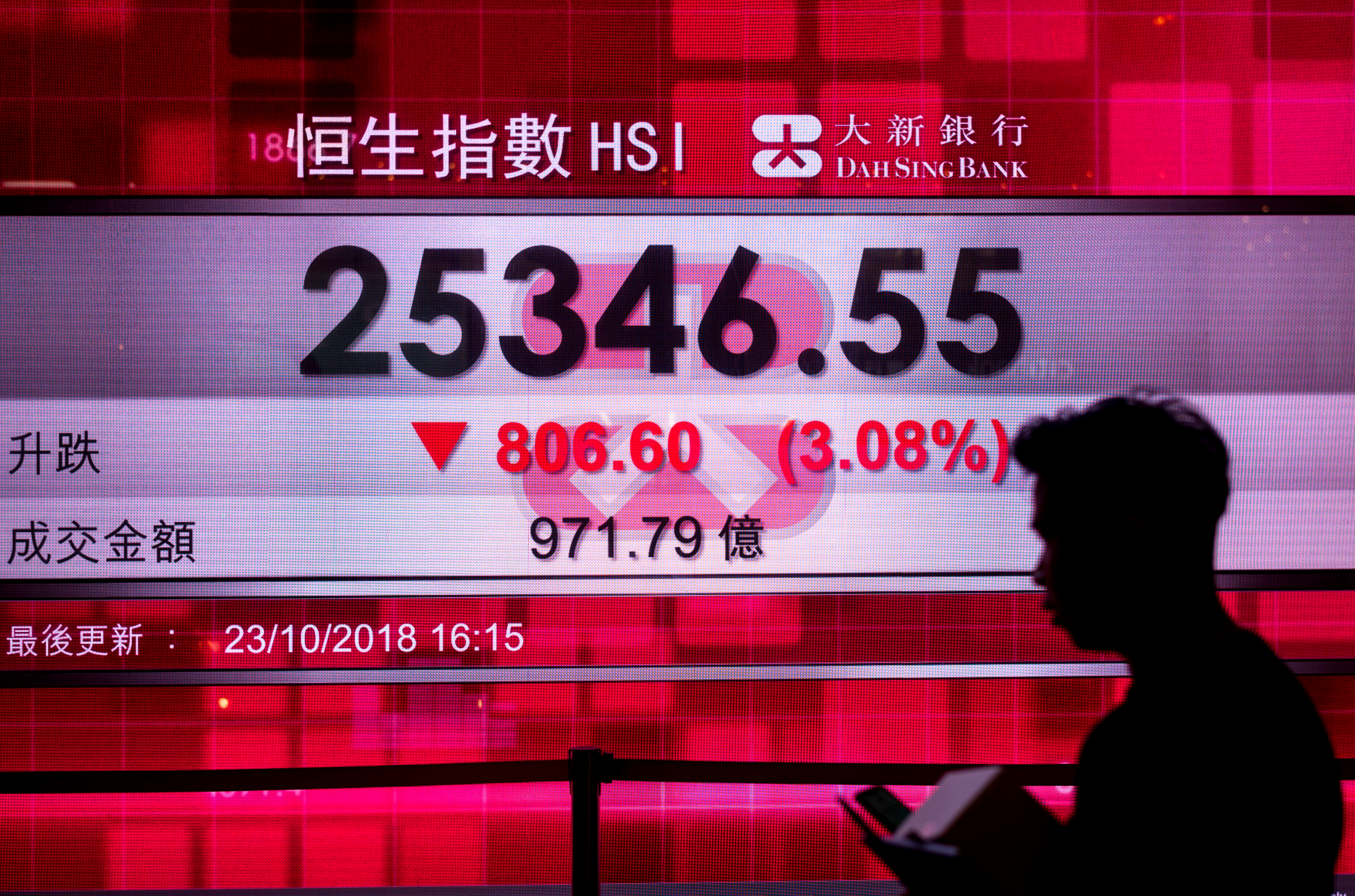As China slows, will U.S. markets suffer?
We're about to find out

A free daily email with the biggest news stories of the day – and the best features from TheWeek.com
You are now subscribed
Your newsletter sign-up was successful
The smartest insight and analysis, from all perspectives, rounded up from around the web:
"China's economy can't avoid the headwinds" of slowing growth and a mounting trade war with the U.S., said Chao Deng at The Wall Street Journal. Right now, Chinese exports look healthy because American firms have been placing orders months in advance to avoid increasingly expensive U.S. tariffs. President Trump has so far placed duties of 10 percent on $200 billion worth of Chinese goods, a levy that will rise to 25 percent in the new year, and is threatening tariffs on $257 billion more. "Many Chinese firms that rely on the U.S. market are worried about difficult days ahead." Analysts say it's only a matter of time before advance orders fizzle and clients start canceling purchases; one Chinese maker of wine refrigerators thinks his revenues could fall 40 percent this year. For Chinese President Xi Jinping, there's a big upside to this trade pain, said Bloomberg. Market observers and even the ruling Communist Party have long predicted that China's breakneck rate of growth would dip at some point. When that inevitable slowdown arrives, Xi will be able to point at Trump and "blame 'external forces' for internal problems."
Still, fears of a coming slump have sent Chinese officials "into overdrive," said Sidney Leng at the South China Morning Post. A team led by Liu He, Xi's top economic aide, and tasked with maintaining financial stability met last week for the 10th time since July. With China's economic growth sliding to 6.5 percent in the third quarter, "its slowest rate since the global financial crisis," that's not an easy task. "The anxiety among China's top leadership is 100 percent," says Xu Jianwei, senior China economist at the French bank Natixis. The slowdown is partly a result of sensible actions by the Chinese government, said Lucas Laursen at Fortune. Beijing has grown more careful about approving local-government spending and has cracked down on risky private-sector loans. But the trade war has "taken a bite out of Chinese businesses in multiple sectors," and made investors wary of more dangers ahead. The government is now trying to calm China's stock markets, which are down about 30 percent since January.
The Week
Escape your echo chamber. Get the facts behind the news, plus analysis from multiple perspectives.

Sign up for The Week's Free Newsletters
From our morning news briefing to a weekly Good News Newsletter, get the best of The Week delivered directly to your inbox.
From our morning news briefing to a weekly Good News Newsletter, get the best of The Week delivered directly to your inbox.
The Trump administration insists this "blistering sell-off" won't spill over into America, said Lesley Wroughton at Reuters. Treasury Secretary Steven Mnuchin argued this week that he wasn't concerned about China's problems "destabilizing our markets." That could change quickly. To date, U.S. stock market investors have been "insulated from China's losses," said Patti Domm at CNBC. The S&P 500 index is still up for the year, despite a series of recent drops, while the Shanghai Composite Index is down 25 percent. Just don't count on U.S. markets weathering the storm forever. Over the past 10 years, when Shanghai stocks fell 10 percent or more in 30 days, the S&P dropped, too, by an average of 4.8 percent. "When China's stock market falls sharply, there's a good chance U.S. stocks go with it."
A free daily email with the biggest news stories of the day – and the best features from TheWeek.com
-
 The broken water companies failing England and Wales
The broken water companies failing England and WalesExplainer With rising bills, deteriorating river health and a lack of investment, regulators face an uphill battle to stabilise the industry
-
 A thrilling foodie city in northern Japan
A thrilling foodie city in northern JapanThe Week Recommends The food scene here is ‘unspoilt’ and ‘fun’
-
 Are AI bots conspiring against us?
Are AI bots conspiring against us?Talking Point Moltbook, the AI social network where humans are banned, may be the tip of the iceberg
-
 The pros and cons of noncompete agreements
The pros and cons of noncompete agreementsThe Explainer The FTC wants to ban companies from binding their employees with noncompete agreements. Who would this benefit, and who would it hurt?
-
 What experts are saying about the economy's surprise contraction
What experts are saying about the economy's surprise contractionThe Explainer The sharpest opinions on the debate from around the web
-
 The death of cities was greatly exaggerated
The death of cities was greatly exaggeratedThe Explainer Why the pandemic predictions about urban flight were wrong
-
 The housing crisis is here
The housing crisis is hereThe Explainer As the pandemic takes its toll, renters face eviction even as buyers are bidding higher
-
 How to be an ally to marginalized coworkers
How to be an ally to marginalized coworkersThe Explainer Show up for your colleagues by showing that you see them and their struggles
-
 What the stock market knows
What the stock market knowsThe Explainer Publicly traded companies are going to wallop small businesses
-
 Can the government save small businesses?
Can the government save small businesses?The Explainer Many are fighting for a fair share of the coronavirus rescue package
-
 How the oil crash could turn into a much bigger economic shock
How the oil crash could turn into a much bigger economic shockThe Explainer This could be a huge problem for the entire economy